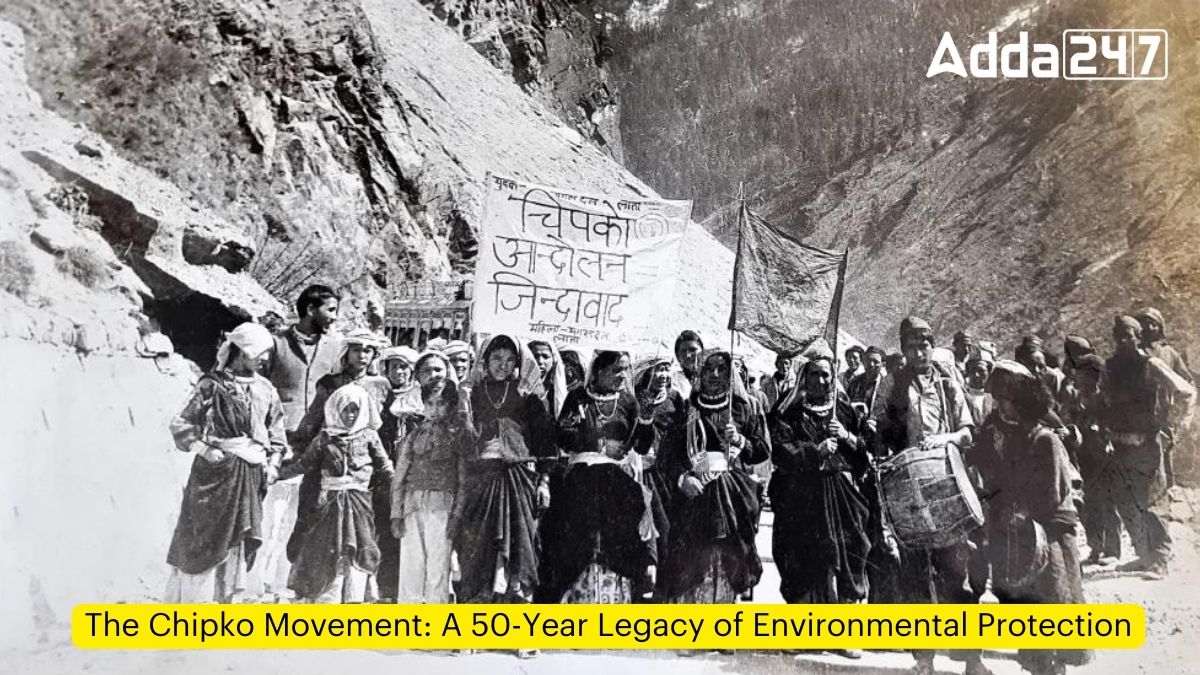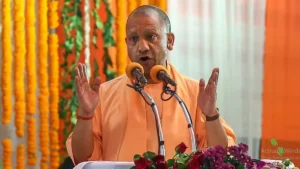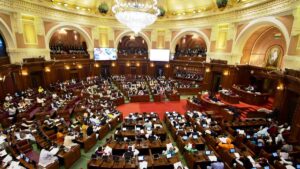What is the Chipko Movement?
The Chipko Movement originated in the Uttarakhand region of the Himalayas in early 1973. The name “Chipko” means “to hug” in Hindi, referring to the practice of embracing trees to protect them from being cut down. The Chipko movement, which began in Uttarakhand, a state in the Himalayas, in early 1973, marks its 50th anniversary.
Origins and Inspiration
While the modern Chipko Movement began in 1973, its roots can be traced back to the 18th century, when the Bishnoi community in Rajasthan stood up to protect trees, leading to a royal decree prohibiting tree-cutting in their villages.
The movement was sparked by the surge in development in Uttar Pradesh after the 1963 China border conflict, which attracted foreign logging companies to the state’s vast forest resources.
Reasons for the Movement
The villagers, who relied on the forests for food and fuel, were angered by the mismanagement due to commercial logging, which was blamed for widespread floods in 1970. The government’s policy of not allowing locals to cut trees for fuel wood or fodder further fueled their frustration.
The final straw came when a sports manufacturing company was allowed to cut trees, while locals were denied the same privilege.
The First Protest
In 1973, environmentalist and social activist Chandi Prasad Bhatt led the first Chipko protest near the village of Mandal. When their appeals were ignored, Bhatt and a group of villagers embraced the trees to prevent logging.
Women’s Empowerment
The Chipko Movement can be considered a women’s movement because women were the most affected by the floods and landslides caused by deforestation. They realized the connection between their suffering and the destruction of the mountains by commercial interests, leading them to support the movement as a matter of survival.
The Leader: Sunderlal Bahuguna
Sunderlal Bahuguna, an eco-activist, dedicated his life to educating villagers and leading protests against the destruction of forests and the Himalayan mountains. His famous slogan, “ecology is the permanent economy,” continues to inspire environmentalists today.
Major Victories
The Chipko Movement’s most significant victory came in 1980, when Bahuguna’s request to then Prime Minister Indira Gandhi resulted in a 15-year ban on commercial felling in the Himalayas of Uttarakhand and Himachal Pradesh.
In the 1980s, Bahuguna embarked on a 4,800 km journey on foot and a cycle ride along the Ganga river, raising awareness about environmental degradation and preserving the ecology of the Himalayas.
Lasting Impact
The Chipko Movement’s tireless efforts and commitment to the environment continue to inspire new generations of activists. Its legacy of peaceful protest and community empowerment has made it a landmark event in India’s environmental conservation efforts.




 Rajasthan Budget 2026–27 Presented with ...
Rajasthan Budget 2026–27 Presented with ...
 Uttar Pradesh Tables First-Ever Economic...
Uttar Pradesh Tables First-Ever Economic...
 Uttar Pradesh Presents ₹9.13 Trillion Bu...
Uttar Pradesh Presents ₹9.13 Trillion Bu...








